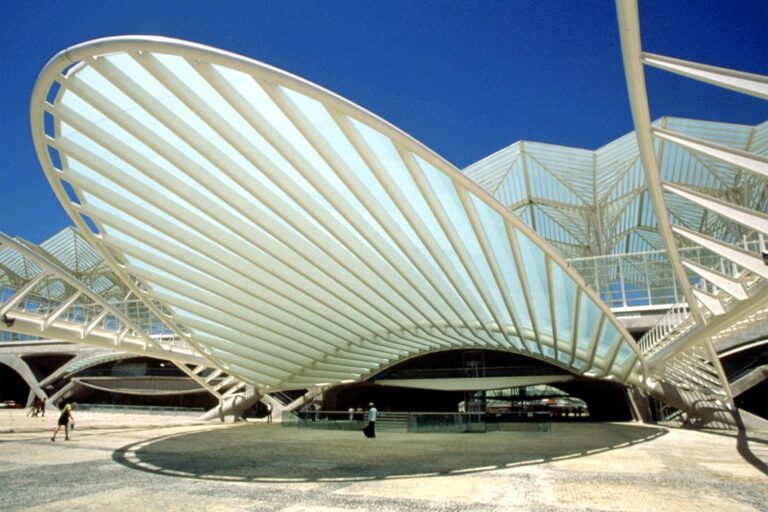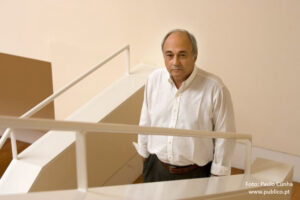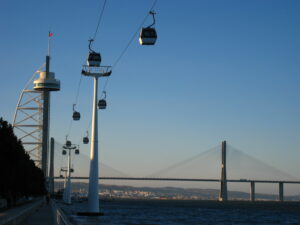Mobility tree
The Oriente Station was inaugurated just days before the official opening of Expo’98, on 19th May. Designed by the Spanish architect Santiago Calatrava, it shortly afterwards won the Brunel Award in the category of large new-build stations.
As well as being a major axis for getting around the then newly reborn east end of the city, it was and still is also one of the most profound symbols of modernity in Lisbon. Calatrava understood all aspects of the station – a railway, underground and bus transport hub – as an element in the town planning framework rather than an isolated structure. The railway station is thus an extended bridge, where the covered platforms are just that and have no other function. Calatrava turned to nature for inspiration: the bridge, a reinforced concrete deck, is set on arches which intersect with the ground, like tree trunks. Above us are the “branches”: parallel beams support sheets of glass, forming the crowns of the trees which shelter passengers.
With its eight railway lines, for national, regional and urban trains, the Oriente Station is also an underground station on the red line, which now extends to Lisbon Airport. The middle floors, between the railway and underground platform, house commercial units offering many different services, from banks to cafés.





